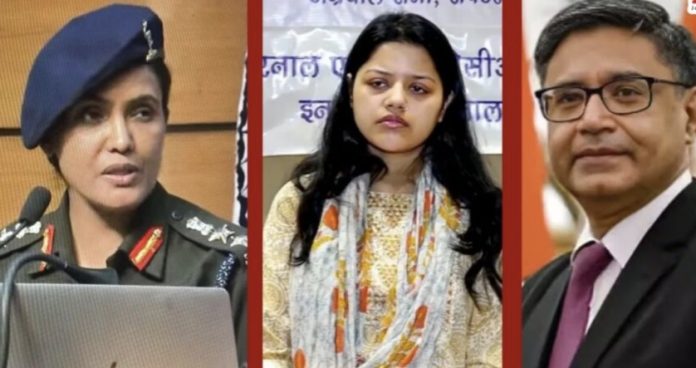In the aftermath of the Pahalgam terror attack, India is grappling with an unsettling wave of hate campaigns that extend beyond anti-Muslim sentiment, targeting even the families of martyrs, serving army officers, and senior diplomats. The disturbing rise in online and offline abuse — allegedly driven by right-wing groups and tolerated by a silent government — is raising urgent questions about the nature of nationalism and the role of the state.
Human rights group APCR reported nearly 200 incidents of anti-Muslim hate since the Pahalgam tragedy, with many cases involving verbal and physical violence as well as digital abuse. Among the most heart-wrenching examples is that of Himanshi Narwal, the widow of martyr Lt. Vinay Narwal, who was branded a “Pakistan supporter” after appealing for peace. Her call for dialogue over war was met with abuse, highlighting a growing intolerance for moderation.
Another flashpoint was the vitriolic attack on Lt-Col Sophia Qureshi, a decorated Army officer and key figure in “Operation Sindoor”. She was disgracefully labelled a “terrorist’s sister” by Madhya Pradesh BJP Minister Vijay Shah. While the state High Court swiftly ordered an FIR and condemned the police’s initial inaction, critics say the subsequent apology from Shah — after being summoned by BJP President J.P. Nadda — amounted to mere damage control.
The abuse did not stop at military personnel. Foreign Secretary Vikram Misri came under attack after announcing a ceasefire with Pakistan. Online trolls leaked his daughter’s personal details and launched misogynistic attacks on his family. Although the National Commission for Women (NCW) condemned the abuse as a “serious breach of privacy”, no legal action has followed, drawing criticism from civil society groups.
The pattern across these cases points to a strategic use of online abuse to enforce ideological conformity and intimidate dissenters. Many of the trolls are linked to the ruling Bharatiya Janata Party (BJP), further fueling allegations of state complicity.
Adding to the concern is the government’s crackdown on dissenting voices. Over 8,000 Twitter accounts — primarily of journalists, activists, and independent media — were suspended post-Pahalgam, purportedly for “security reasons.” In contrast, right-wing accounts spewing hate remain untouched, indicating selective censorship.
While the judiciary has taken suo motu action in some cases, the government’s inaction remains glaring. No minister has faced real consequences, no prominent troll account has been penalized, and no arrests have been made. Critics argue that the government’s silence is enabling a culture of impunity.
The central question now is whether this is true nationalism or the nurturing of extremism under the guise of patriotism. When grieving widows, serving officers, and top diplomats are vilified for advocating peace and restraint, the nation’s moral compass stands compromised.
The government is at a crossroads: Will it support those who serve and sacrifice, or those who spread hate? Until decisive action is taken, the perception that fringe elements enjoy political protection will continue to erode the democratic ideals India upholds.




